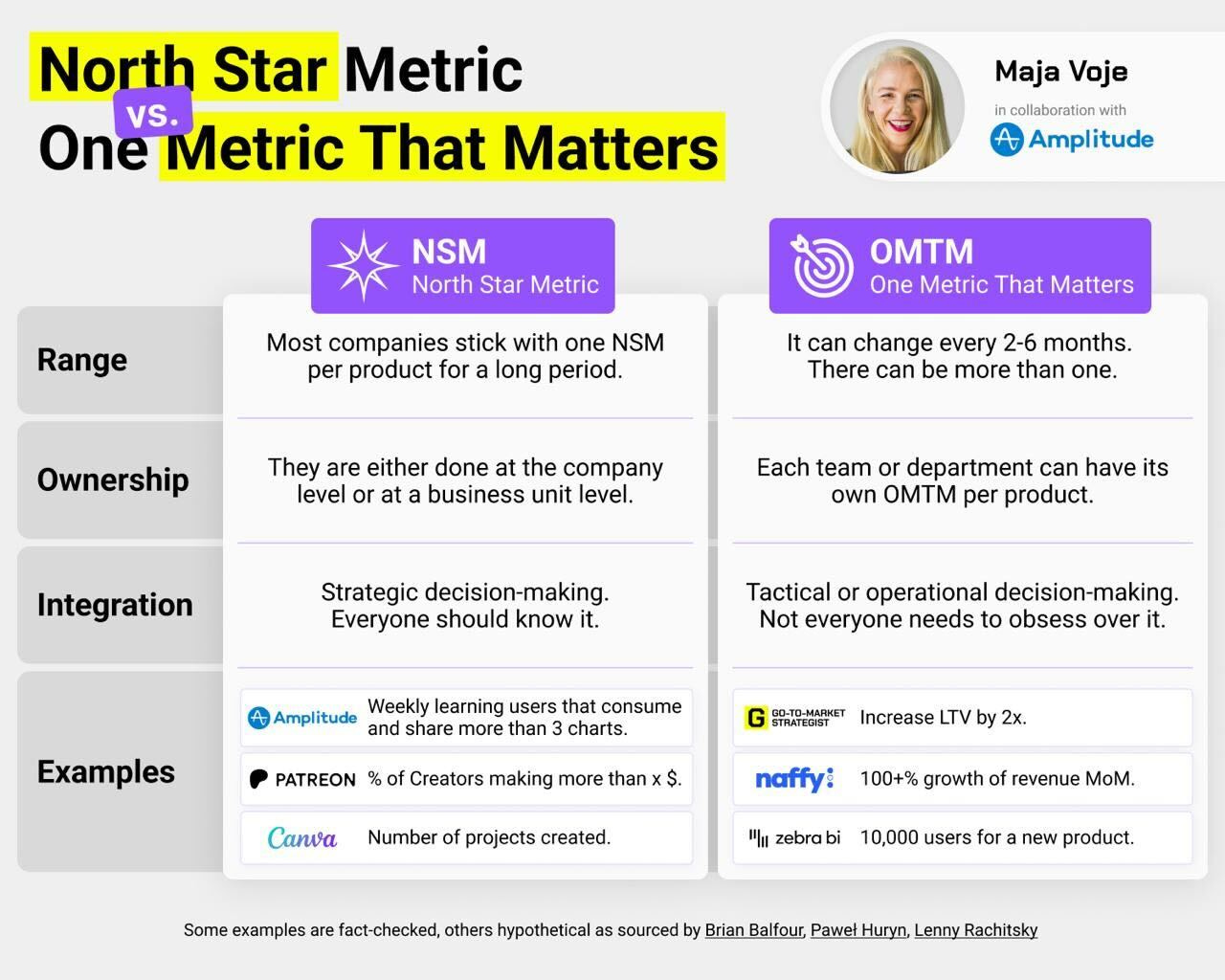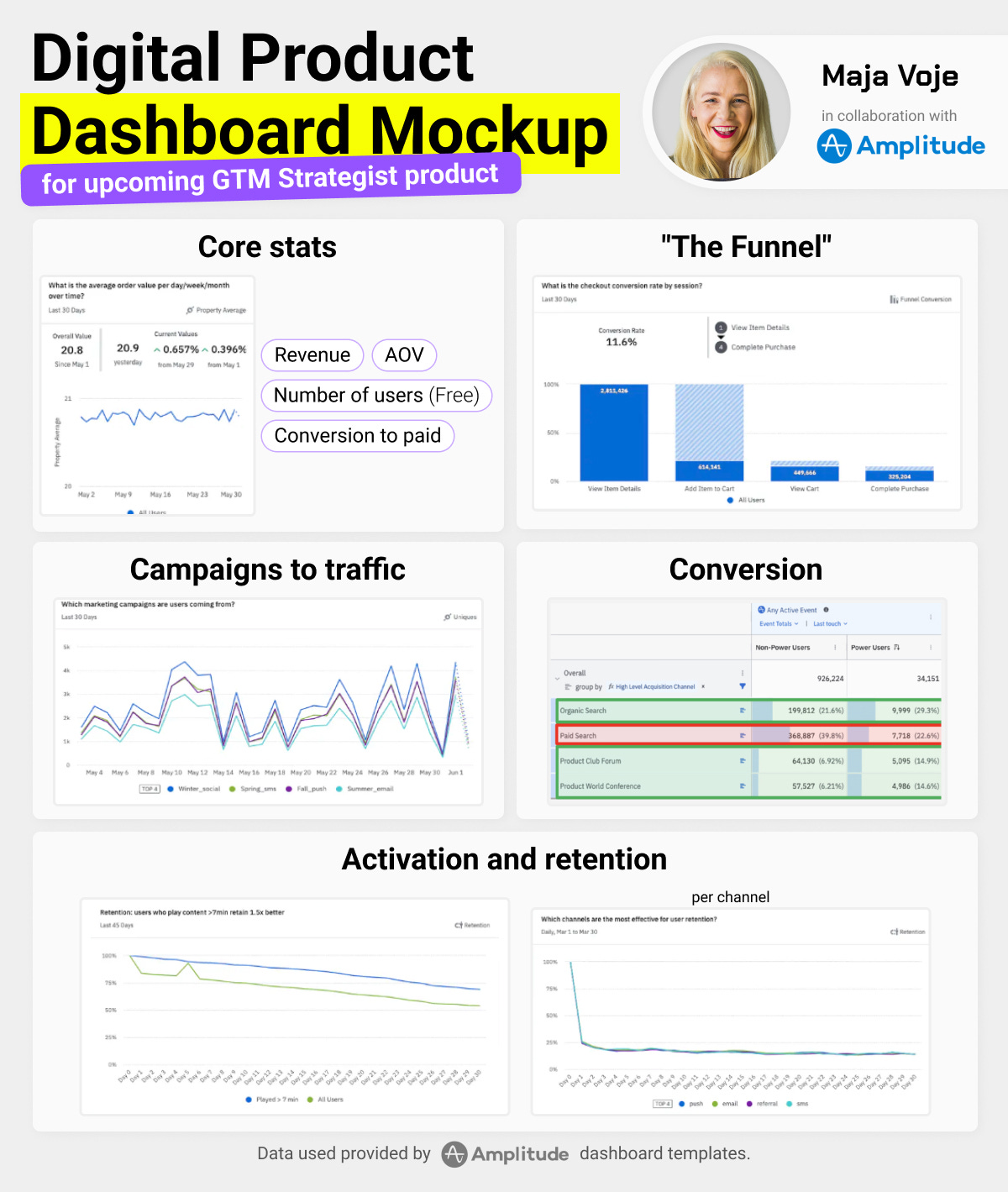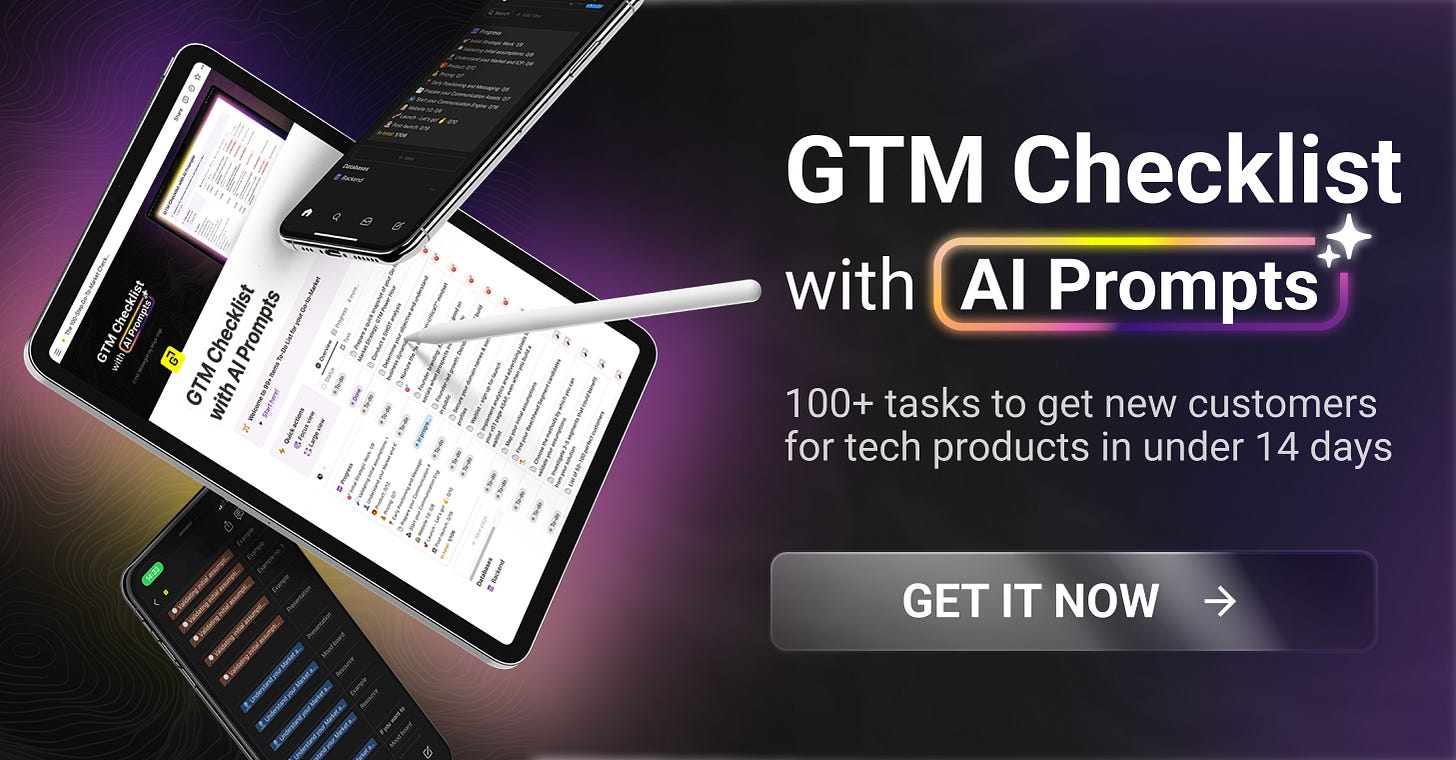What gets measured gets done 📈
Behind the scenes: New analytical system for GTM Strategist
Dear GTM Strategist,
If you have a perfect overview of your business KPIs, I am so happy for you but also a bit jealous.
Ever since the book launch, our team has been stitching together data from Amazon, Substack, LinkedIn, and the website. I calculated that in total, we “wasted” more than 45 hours (a full-time work week of a person) in the last five months stitching data together every week to build a basic overview of the business.
What is worse, I do not have any attribution data from Amazon and have very limited capacity to contact customers.
Enough is enough.
We will soon launch a self-hosted digital product (my biggest investment in Q1), and I will not make the same mistake again, especially because we will also invest in ads. There will be no more “guessing” where the purchases come from.
I am putting together a mockup of my “perfect dashboard” and reading this report by Amplitude to avoid more data fiascos.
Amplitude, a digital analytics platform, also kindly supports this post. Beside that, they have also participated in many great examples for my book GTM Strategist 🙏. I am currently studying their report, 10 Mistakes You’re Making with Your Digital Analytics, as I prepare an analytical system for the soon-to-be-launched GTM Strategist digital product. You can get the report here. Kudos to Amplitude for supporting independent communities such as ours. Show them some love! ❤️
Now, let’s tackle my challenges.
When OMTM is a better choice than NSM
Many people will say that you start setting up your analytics system by finishing the North Star Metric (NSM) workshop.
Most growth consultants would go on autopilot here. Expect a monologue:
“For Uber, the North Star Metric is the number of rides; for Spotify, the time of content consumption (hours of music played); for Amazon, it is the number of purchases per Prime Subscriber. What is yours? Think hard about how to describe the value that your product is creating. And it cannot be revenue or profit - think value first!”
I would disagree and I never do NSM workshops with pre-PMF teams.
Let me explain why.
Short answer:
While you are searching for your product-market fit, audience and products change (or die) rapidly. How can you set up a “guiding metric” for years to come on something so volatile?
Do not get me wrong, NSM is wonderfully aspirational. My NSM is the number of businesses that crossed the chasm using the GTM Strategist framework (the goal for this year is 10,000), but it takes me forever to get a feedback loop, so I would not center my content system around it.
Long answer:
Meet Jakub. He is our community member from Poland 🇵🇱 and the founder of naffy, a platform that empowers influencers to monetize their audience with digital products.
Q1 was great for his team. His main challenge in Q2 will be … Monetization.
How can we best help Jakub set up a sensible analytics system to support what is mission-critical for them in Q2?
Do we sit him down for a few hours to think about the true North Star Metrics?
Is it weekly active users, weekly active paid users, or the number of e-books created?
I do not think so.
Jakub would benefit much more from thinking which is One Metric That Matters - OMTM in his business, which is still in a pre-product-market stage at the moment.
North Star Metric will be a brilliant post-product market fit guide, but One Metric That Matters will keep the lights on before you get there.
OMTM is very compliant with our mission-critical mindset, isn’t it?
As a go-to-market leader, ensure your team understands and agrees with it. I like to believe that if I woke up each and every one of my team members at 3 a.m. and asked them what is mission-critical, I would get the same answer. Your job in communicating this goal is not done before you have perfect awareness and buy-in from the team.
Work backwards from your OMTM
The way we do analytics and reporting in our business right now is very chaotic and wasteful in terms of time and resources. We literally still use a Google sheet to bring all the data together, which gives a poor overview for decision-making since it is a post-mortem, not in real time. Could we do better now? Sure. However, after discovering that I did not want to run Amazon as a prime sales channel anymore, I decided not to build an intermediate solution but wait for the “real deal”.
This is why, with a new launch, it became mission-critical to build a sales analytics system to support our decision-making. More so, we are scaling with ads. Praying that organic LinkedIn reach would support our business forever is a leap of faith assumption that I do not want to risk.
Since we are not at a volume to justify the investment of building any “self-hosted data warehouse”, I went with a tool “from the shelf”. Amplitude was a logical choice since I would also have to monitor product usage, not only acquisition. We also operate in Europe, where data privacy is the #1 bogeyman 👻 for all things digital. I am excited to bring in more user attributes for data segmentation compared to basic Google Analytics settings.
My OMTM for this launch is to get at least 500 new product purchases.
Now I have to work backward:
Project the traffic and CTRs needed to determine the campaign budget and Customer Acquisition Cost (CAC)
Project and measure conversion rates at each stage of the new product
Measure product activation and usage
Project LTV and Churn
And much more…
Here is how I drafted my dashboards - final tweaks pending:
I am excited to drop our analytics Google sheet forever and finally know real-time sales and product usage data.
📘 New to GTM? Learn fundamentals. Get my best-selling GTM Strategist book that helped 9,500+ companies to go to market with confidence - frameworks and online course included.
✅ Need ready-to-use GTM assets and AI prompts? Get the 100-Step GTM Checklist with proven website templates, sales decks, landing pages, outbound sequences, LinkedIn post frameworks, email sequences, and 20+ workshops you can immediately run with your team.
🏅 Are you in charge of GTM and responsible for leading others? Grab the GTM Masterclass (6 hours of training, end-to-end GTM explained on examples, guided workshops) to get your team up and running in no time.
🤝 Want to work together? ⏩ Check out the options and let me know how we can join forces.








